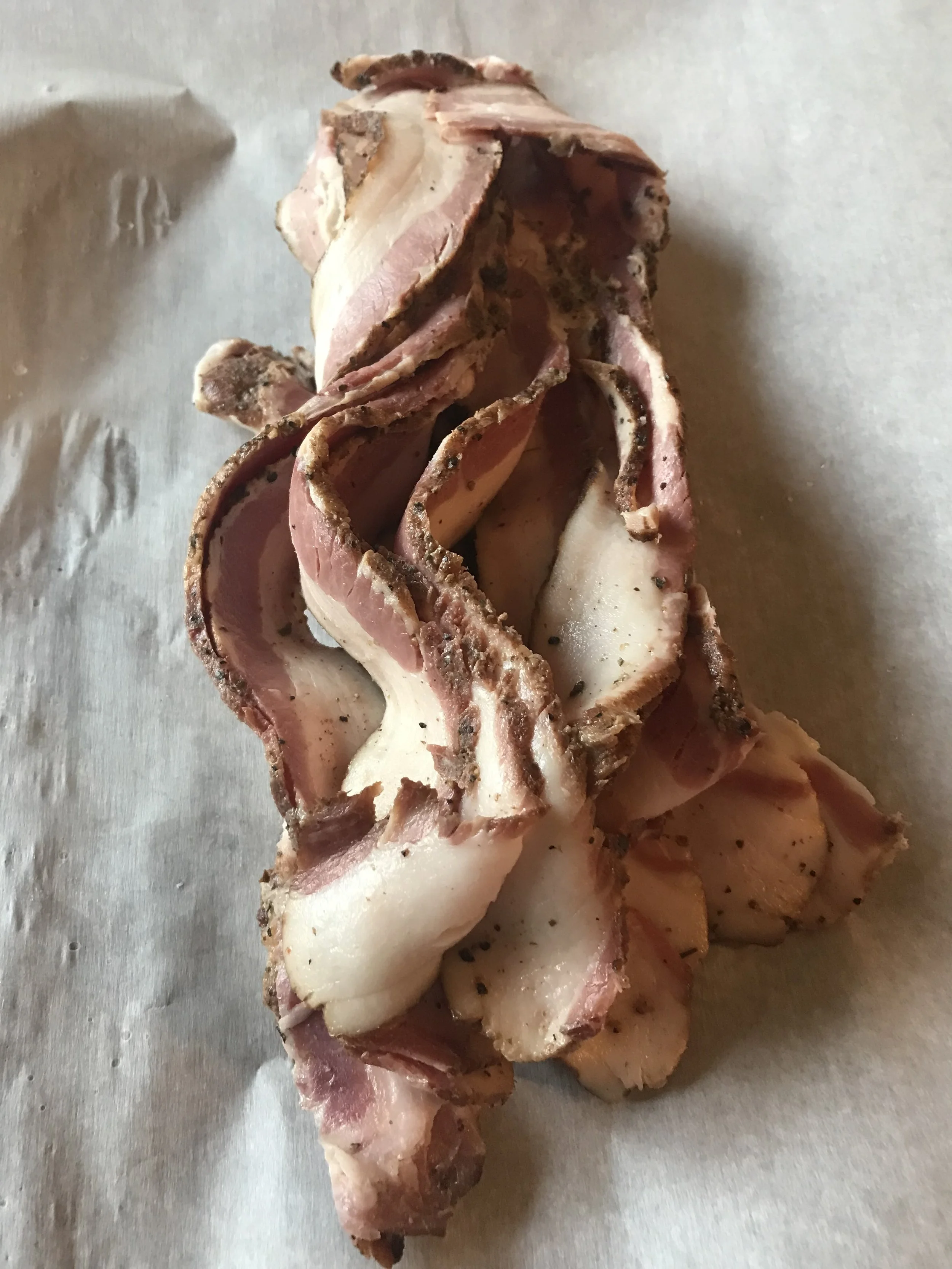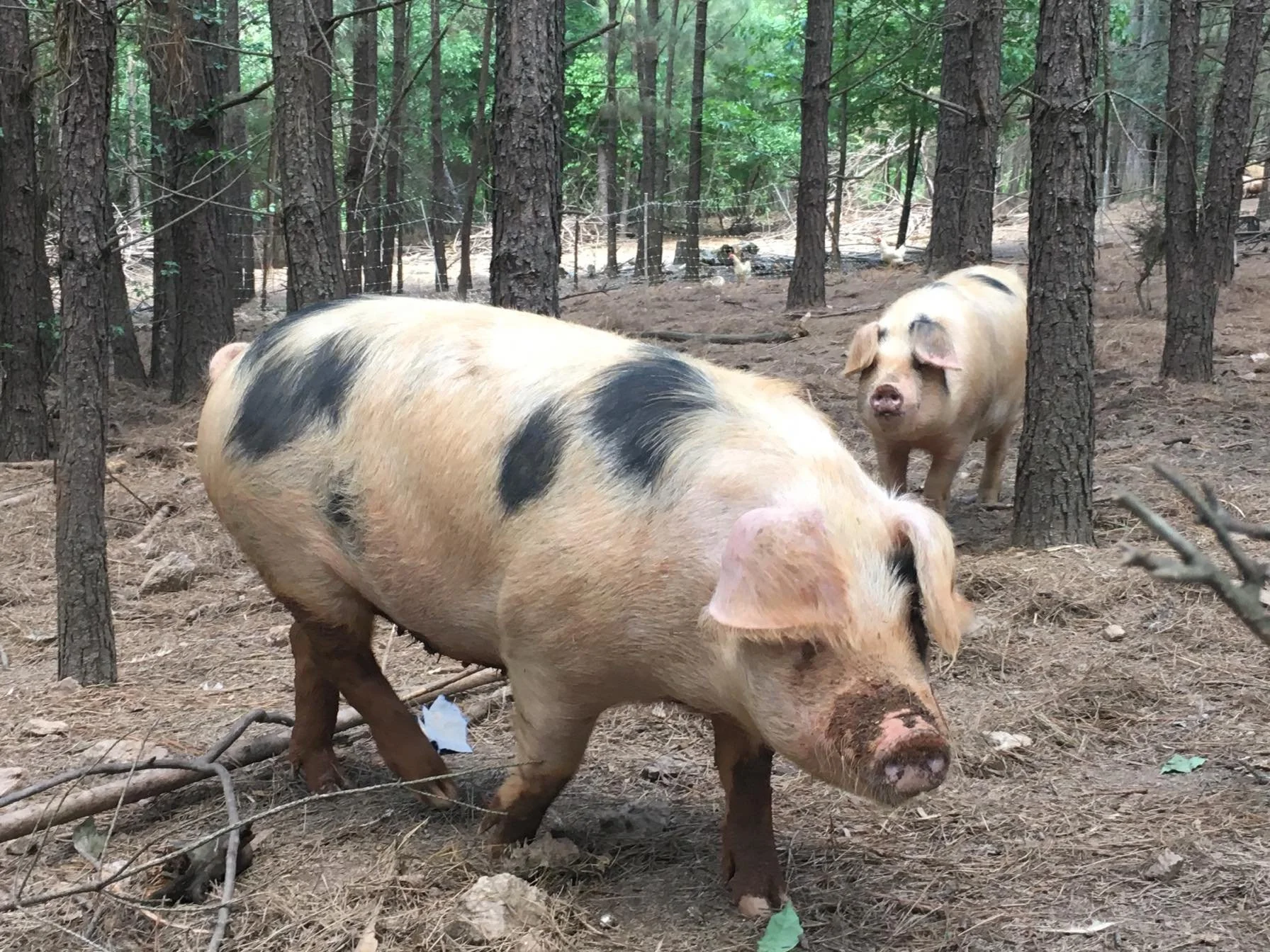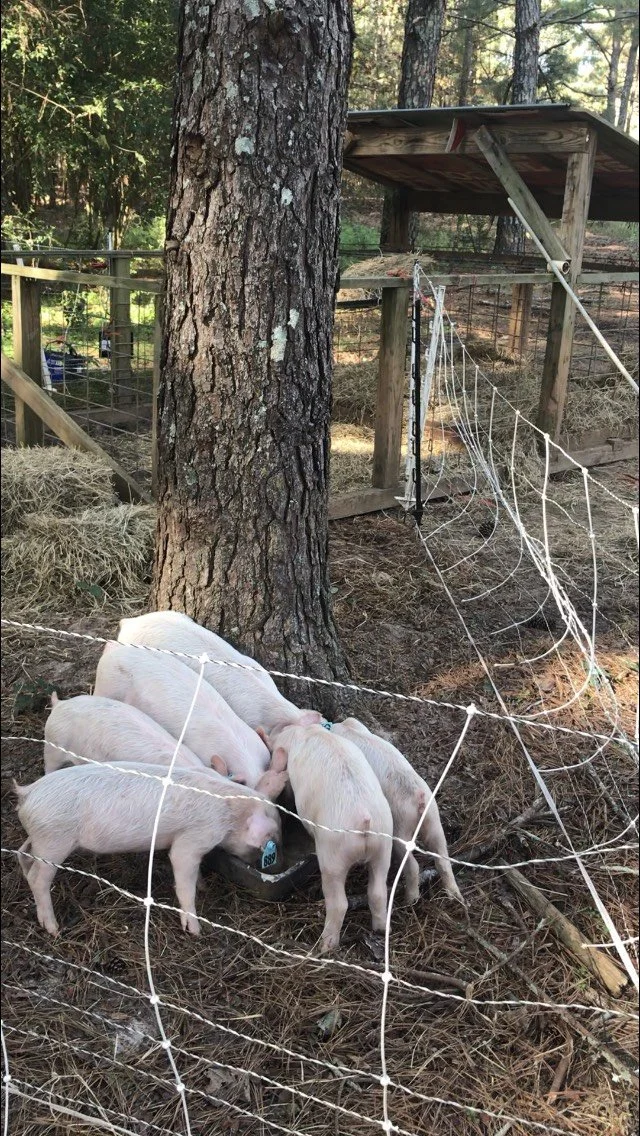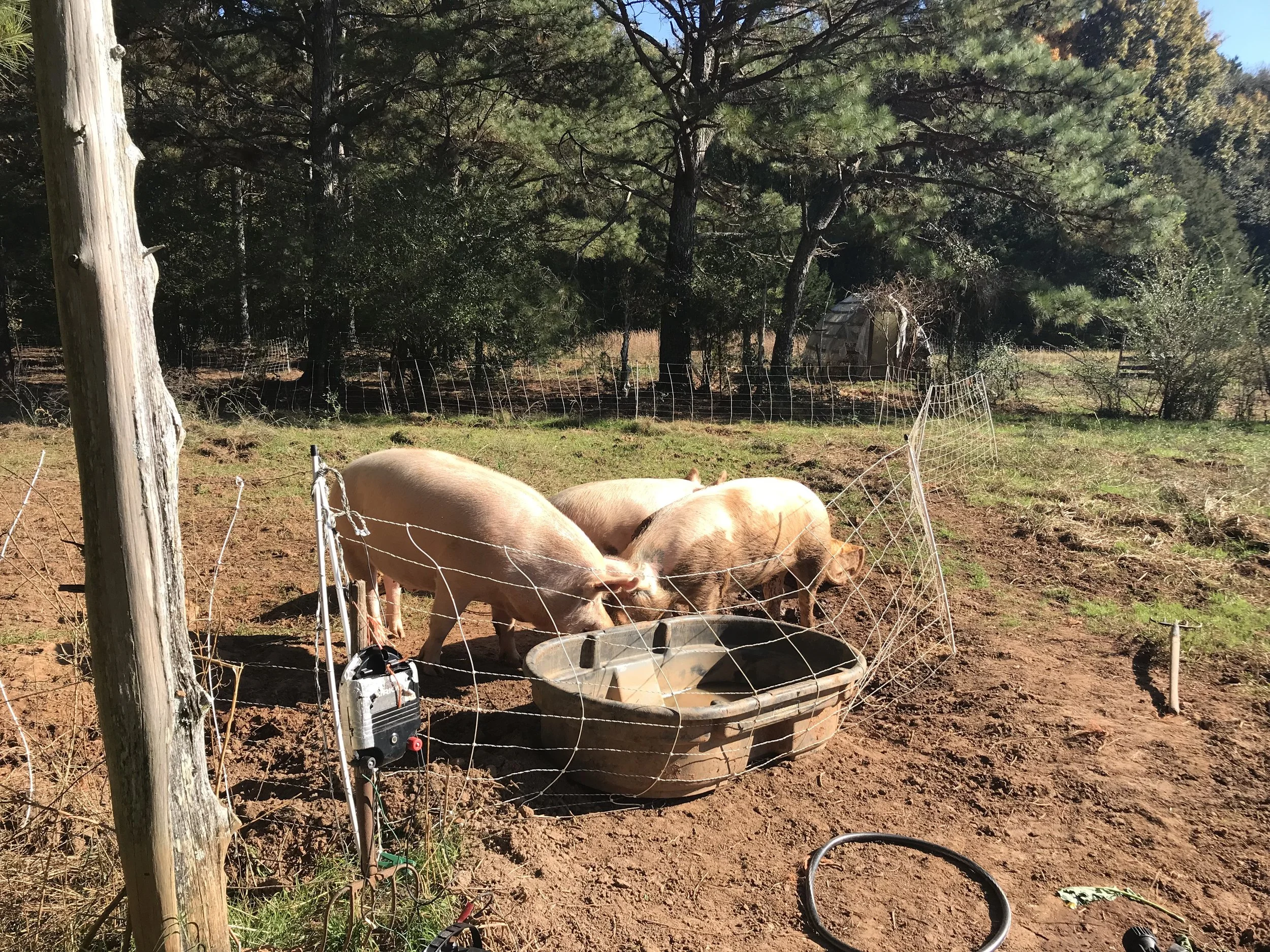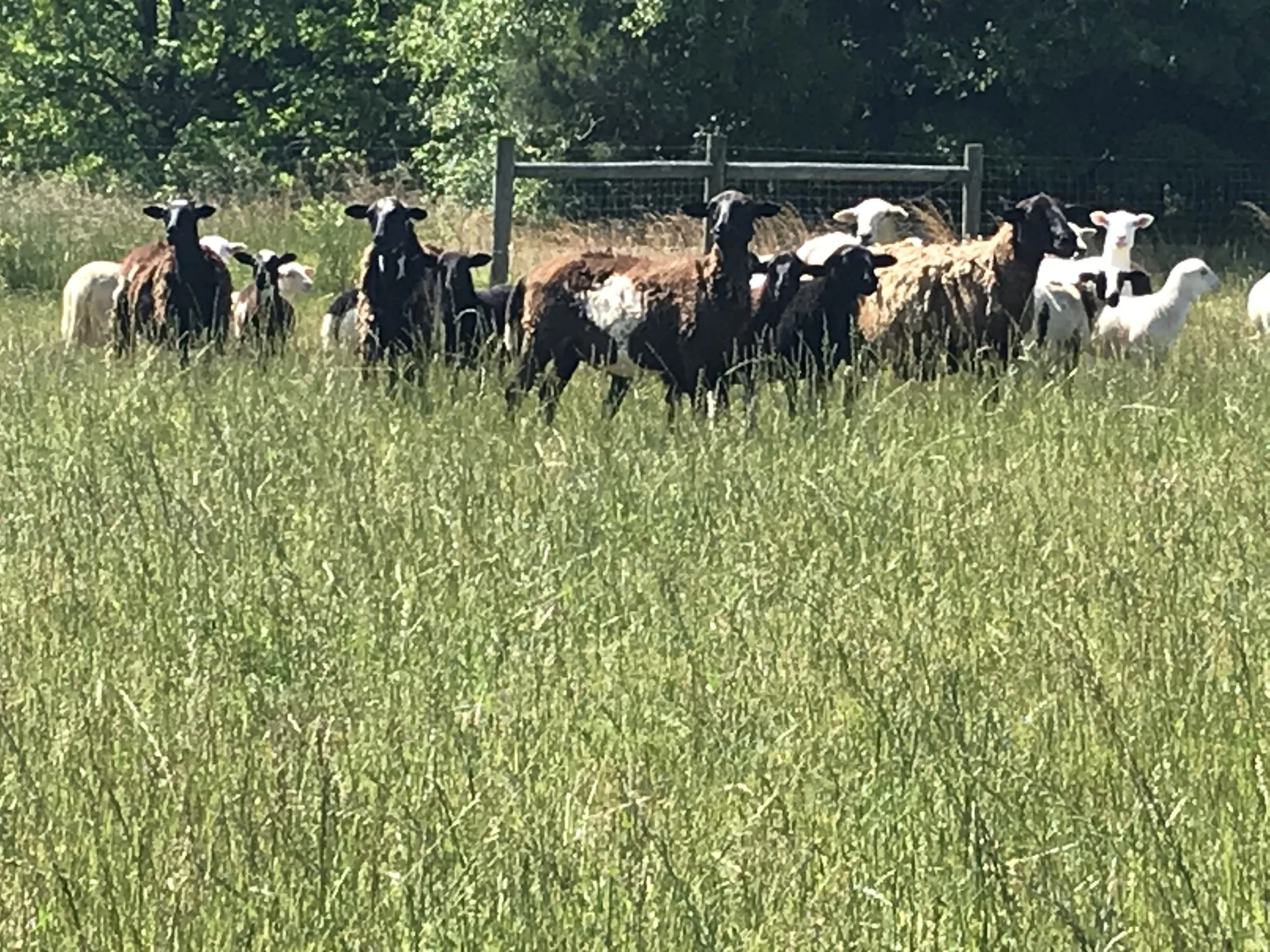A little more than a year ago, which I'm sure feels like ten years ago to all of us, I split a heritage pig from a local farm with my friends. When you buy a whole pig from a local farmer, you get enormous savings per pound on high quality, lean and healthy meat, which at least in this case was raised humanely by Heritage Spots and Feathers. I saw for myself that the Gloucestershire Old Spot pigs live in a semi-forested field so that they can do what pigs do best, root around for seeds and stuff underground and lay around in the shady muck to get fat and keep cool in the Georgia heat. When you buy a whole pig you also get to choose your cuts: chops, hams, butts, ground, sausage, etc.
What you don't often get is small-scale, humanely-raised bacon.
For that, the farmer would have to ship the pig five hours away.
FIVE HOURS. FOR BACON.
I promise that this is a story about bacon, but I have to digress already to explain this insanity.
Just a few days ago I watched a CNET livecast about Biden's Build a Better Food System initiatives that will set aside money to increase competition in the meat processing sector. I had to laugh at their (and all government, really) analysis of the problem of consolidation in the meatpacking industry. It's always couched in passive terms as if it just happened. Like magic. Like all the small-scale butchers that used to exist in every town, sometimes in every neighborhood somehow just vanished, like they were raptured up to bacon heaven.
No, consolidation was a concerted campaign on the part of large-scale meat brands (Hormel, Purdue, etc) to vertically integrate the industry, eliminate the competition, own the packing plants and everything but the animals and the farmland. They even go so far as to partly own the farmer in the weird share cropping-esque agreement between food companies and farmers that is contract farming. But that's another story. In this story, once again state capitalism masquerades as food safety policy and "humane" processing (which is anything but).
Since the 1970s, new rules emerged every few years or so that tightened the regulatory hold on animal slaughter. They introduced new technologies and practices that were designed, in theory, to guarantee food safety and to ensure better deaths for animals. To that end, the USDA requires all animal processing facilities to be inspected. This means that a person has to stand there and watch the whole process from start to finish to ensure that rigorous safety standards are adhered to. Well, at least in theory. I guess a single inspector can watch thousands of birds die an hour in a slaughterhouse, in theory. Anyway, hiring an inspector is an enormous expense for a small-scale abattoir, and of course, that expense has to be passed on to the consumer, raising prices in relation to prices for industrially produced food that are already distorted by subsidies.
USDA inspected facilities also require a bunch of equipment and processes to do it by the food safety handbook, which is maybe a good thing. Studies show that small-scale backyard processing for retail sales still practiced by the Amish in Pennsylvania and a few other places are less contaminated by pathogens (such as e. coli and salmonella) than those slaughtered in large packing plants. Backyard processing also arguably give animals far less stressful deaths than if they were transported FIVE HOURS to a USDA facility. Far from giving animals better deaths, and us safer foods, the cost prohibitive machinery, facilities and inspectors gave large-scale meat processors an edge that smaller scale facilities did not have. So those local butchers closed up shop one after another until only a few stalwart holdouts were left.
So, at this point you might be asking how did I get a pig processed for my freezer if all this is true? The pig itself was processed in a deer processing facility, which is exempt from USDA requirements. Bacon falls under animal food processing, so it must happen in a USDA inspected facility. So, me and my friends have been eating meat processed without inspection or all the other required safety measures for years and somehow surviving it.
Hmmmm.
We also made our own bacon and lived to tell about it.
Come back to learn how next week!
